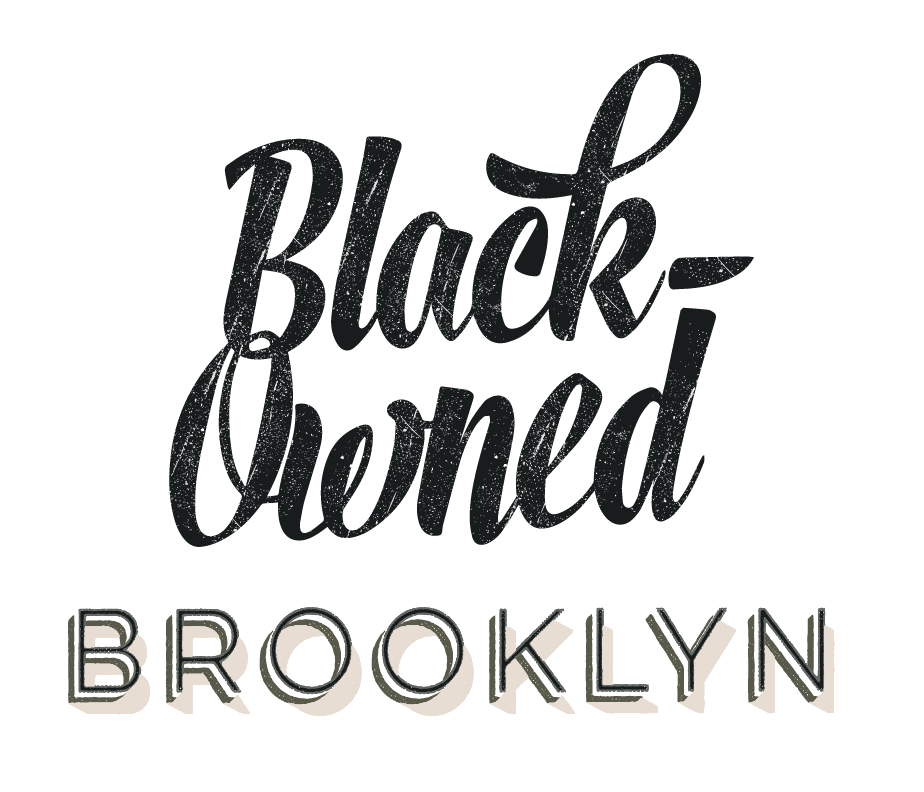Brooklyn Suya
Amid the tumult of last year’s mandated lockdown in New York City, I swiftly found myself coping through food. Brooklyn Suya, a fast-casual restaurant nestled in Crown Heights, was a portal that took me back to my mother’s rendition of the staple Nigerian street food I grew up eating. Taking that first bite of their signature bowl with rice, kale, plantain and steak sprinkled with heat-packed suya spice always helped loosen the day’s stress.
Co-owners and friends Hema Agwu, 32 (left), and Folusho Adeyemo, 30, have had similar journeys to restaurant ownership. Both are Nigerian — Hema grew up there, while Folusho is a Crown Heights native who was raised five blocks from the Franklin Ave. restaurant — and their moms taught them to cook as children. They met while both working at the now closed Trade Union Cafe. The duo decided to make moves as business partners in 2018, first opening Brooklyn Suya as a pop-up that August to test out their concept. Six months later, they made it official with the signing of a lease.
“It was really important to us that we kept the suya authentic but also presented it in a way that would be attractive to customers from all walks of life,” Hema says of Brooklyn Suya’s approach of delivering Nigerian cuisine through customizable bowls. “We’ve been stunned to see that tasting our suya has been a nostalgic experience not only for Nigerians but also for people from other cultures. This spice somehow hits everyone in a way that brings them back.”
“My personal journey is bringing Nigerian food, African food, into the world's view.”
Suya is technically the spice itself — a mix of peanuts, aromatics and peppers ground together — although it’s commonly referred to in Nigeria as the whole dish. Folusho and Hema are more than happy to explain the origins of the meal, which is commonly enjoyed alongside bustling streets.
“A beautiful old lady would carve the meat, grill it, sprinkle the spices on top and serve it in a newspaper to everyone,” Folusho says. “And there's a technique to actually produce suya itself. It's not easy.”
A generously portioned bowl from Brooklyn Suya contains a base (kale and rice), protein (steak, chicken, shrimp, salmon, eggplant or tofu) and your choice of add-ons (sweet plantain, veggies, boiled egg and avocado), accompanied by raw onion, cucumber and tomato. An additional condiment that you won’t find on the streets of Lagos are the sauces: a creamy, savory peanut aioli or a sweet barbecue sauce. “They bring the bowl together beautifully,” Hema says. “A lot of people come just for those sauces—we’re not allowed to run out anymore.”
But perhaps the most important choice you’ll make at Brooklyn Suya is the suya spice, also commonly known as yaji, which the restaurant offers at four levels: Miya (mild), Yaji (medium), Ose (extra spicy), and Lagos (atomic). Three even hotter blends are coming soon. Once it’s safe, Hema plans on unveiling his Suya Challenge, in which customers who dare will have to try (and survive) all seven levels of heat. In the meantime, the store also sells jars of their suya to spice up your meals at home.
“We’re bringing you the concrete jungle, from Naija all the way to New York City,” Folusho says when describing the look and feel of Brooklyn Suya. The tiny space, which for now offers only takeout and delivery, is packed with design touches inspired by both locales. African paintings, sculptures and shells intermingle with exposed red brick and airbrushed art of the 3 train.
For Hema and Folusho, making Brooklyn Suya thrive is tied to a bigger mission of representation. “Our food is delicious, our food is excellent, and it can be compared to dishes served at any restaurant in the world,” Hema says. “My personal journey is bringing Nigerian food, African food, into the world's view.”
The chefs also want to serve as examples for local youth who look like them by showing that Black business ownership can be achieved with consistency and drive. “When they come and ask how we did it,” Folusho says, “We don’t hesitate to give them the blueprint.” —By Antoinette Isama
717 Franklin Ave, Brooklyn, 718-513-0122, brooklynsuya.com





















